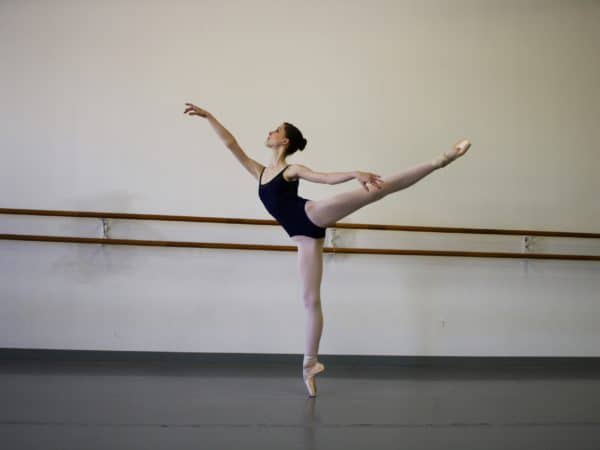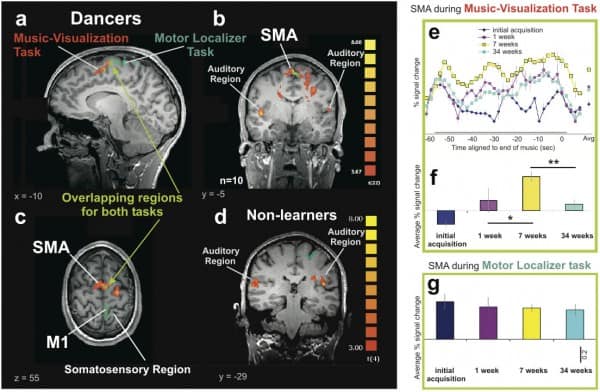
 A new study from York University Faculty of Health sheds light on how learning a new skill requires a ramp up in brain activity, even for the experts.
A new study from York University Faculty of Health sheds light on how learning a new skill requires a ramp up in brain activity, even for the experts.
Researchers studied the brains of dancers from the National Ballet of Canada during a 34-week period as they learned and then performed new choreography. The results showed that while brain activity in the dancers’ cortical regions increased during the initial stages of learning, this activity was significantly reduced over time, employing less neuronal activation to achieve the same result.
“We found that in the learning process, our brain function makes an inverted ‘U’ learning pattern from a slow pace at the start, accelerating to a peak at the midpoint, before returning to the original pace once we have mastered the task,” says author Dr. Josepsh De Souza of the Centre for Vision Research, Department of Psychology at York University.
The study’s authors assert that while research already exists on what happens within the brain during motor skills rehearsal, that research has been focused mostly on contrasting brain activity in beginners versus experts, whereas the current study provides an analysis of continuous learning effects over a lengthy period of time.
Researchers conducted fMRI (functional magnetic resonance imaging) scans on 11 dancers over a period 34 weeks while they learned and then performed a new dance. The scans took place at four time intervals during the process: at the end of weeks one, two and seven and then again after week 34. While being scanned, the dancers listened to the music that accompanied the dance and were told to visualize the choreography in time with the music.

The results showed that even for experts, learning new skills involves both an increase in neural activation followed by a decrease as the skill becomes learned and the action more accomplished. For the dancers, the fMRIs showed increasing neural network activity up until the seventh week and then a decrease in activation between weeks seven and 34.
The study’s authors see this result as consistent with other research showing that expertise in physical tasks ultimately produces a decrease in activation within the cortical region of the brain -the part concerned with higher-level, more consciously controlled activity – along with a corresponding increase in reliance on the subcortical region of the brain, dealing with habit-formation and less consciously controlled activity.
Neuroplasticity -the idea that the brain is constantly developing and changing in response to external stimuli- is becoming more a focus of research and public interest as scientists discover more about the brain’s ability to reorganize itself. The authors see theirs and related research on the brain as instrumental in providing assistance to people who have been affected by brain damage or brain degeneration.
“The study outcome will help with understanding motor learning and developing effective treatments to rehabilitate the damaged or diseased brain,” says Dr. De Souza who works with people suffering from Parkinson’s disease. The study was published online in the science and medicine journal PLoS One.
Leave a Reply
You must be logged in to post a comment.



 Share
Share Tweet
Tweet Share
Share




Comment